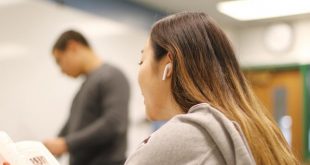Jocelyn Li
Asians are typically stereotyped amongst others as “nerdy” or are studying day and night. The advantages and, mostly, the disadvantages of this stereotype can be clearly seen in the college admissions process. Due to the common knowledge that Asian-Americans generally do better in school and are more successful in life, colleges have raised the expectations for Asians. Although this may seem fair on the surface, most of Asian success is due to hard work. If Asians work harder to earn it, colleges should give them the same chances as any other race or cultural group. Asians deserve a good college education and struggle hard to attain it. America’s ideal system of freedom and equality is broken when colleges deny certain people, namely Asians, of the same chance of acceptance as others.
Just because Asians are expected to be smarter doesn’t give colleges a reason to make it more difficult for them to get in. Grades and success aren’t exactly determined by how smart someone is originally, but more of how much effort they put in. “The difference does not seem to be driven by differences in intelligence… but how it [intelligence] is harnessed” (Kristof, NYT). Colleges are denying Asians the goal they worked hard for simply because they are willing to work harder. If colleges raise standards for a certain group of people that puts in more effort than others, they would also be pushing away most of those hardworking people. Many colleges would argue, equality of races in a school can lead to positive exposure amongst multiple cultures. Yet, this equality limits the amount of diligent Asians that are accepted into prestigious schools. Yes, many Asians are extremely hardworking. But what exactly is the cause of all this effort and hard work, and why are Asians especially attributed to them?
It’s within Asian culture to strongly focus on education, and the stereotypes attributed to them are also great motivators. Large education based families are only so successful due to their effort. As Confucius once said, “He who learns but does not think is lost. He who thinks but does not learn is in great danger” (Analects 2.15). Ever since ancient times, China and Asia in general have had an extreme belief in the need for education. Over time, this belief has been ingrained in Asian culture and is a major reason why Asians are still so intent on studying. Because of their drive for learning, Asians are plagued with stereotypes that point out their “nerdiness” and need for A’s. But rather than causing depression or sadness, Asians take these negative thoughts and transform them into something positive. They instead use and “ride” upon them, feeling the need to uphold these stereotypes and therefore working harder to achieve it. Not only do these college restrictions affect Asians, but they also affect the American idea of equality and freedom.
America was built upon an ideal system of equality and freedom, but to establish different chances for different people will only break these ideals. Our country is a free country, an immigrant country that encourages multiple cultures and ethnicities. To segregate people, whether in the forms of education or general rights, goes against the basis of equality. While colleges believe making it more difficult for Asians will benefit the diversity of the school, it is unjust and cracks the protective and equitable shell we’ve struggled so hard to build.
Absolute equality is hard to obtain, but over the years, the United States have done a proper job of stabilizing its many ethnicities. However, if colleges continue raising the standards for Asian-Americans, they will eventually be the cause of another era of segregation. Asians are the ones working the hardest to get into the colleges, yet they are, at the same time, the ones pushed aside the most. They’re simply more hardworking than others, and therefore deserve the same acceptance rates by colleges. We were originally an equal and fair country, but what happens when an entire race is separated and given a harder chance at getting into prestigious schools?
 Tempus Magazine By Students, For Students
Tempus Magazine By Students, For Students 


